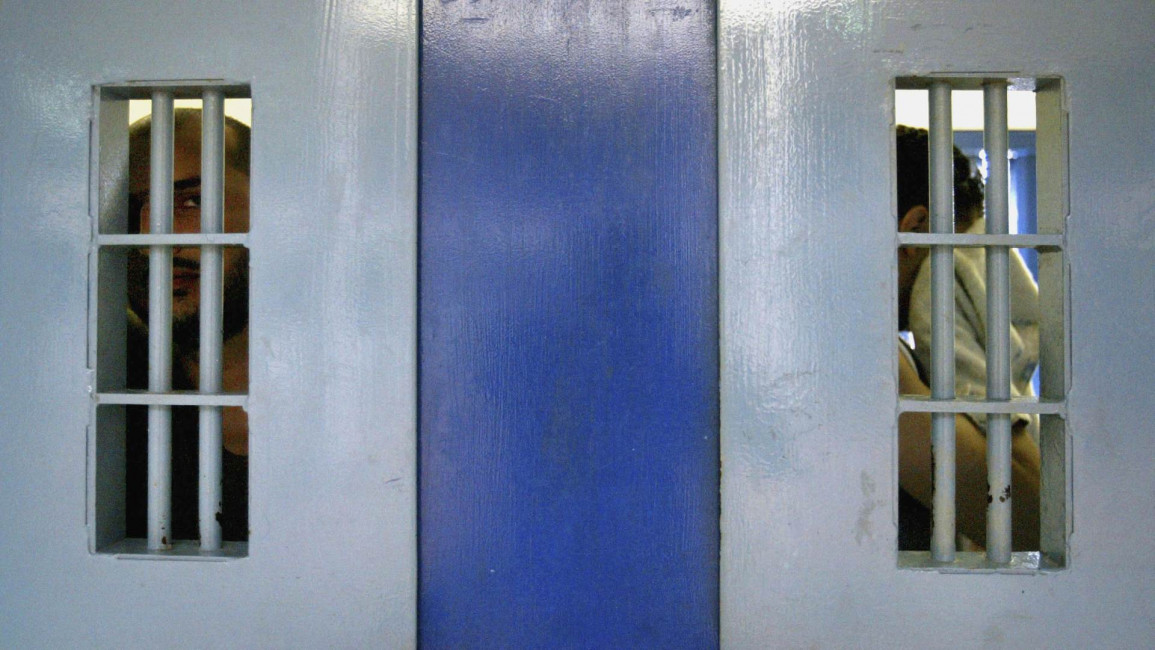Six Palestinian prisoners continue hunger strike despite dire health conditions
Six Palestinian prisoners have continued their hunger strike in the Israeli jails to protest their administrative detention without charge or trial, the Palestinian Commission of Detainees Affairs said on Saturday.
The prisoners are Kayed Fasfous, who started his hunger strike 115 days ago; Miqdad al-Qawasmy, Alaa al-Aaraj, Hisham Abu Hawash, Ayad al-Harimi and Loai al-Ashkar who joined the hunger strike for 108, 91, 81, 45 and 27 days respectively, according to Palestinian sources.
In a press statement sent to The New Arab, the commission said that the six prisoners suffer from severe health conditions, mainly al-Fasfous.
"Unfortunately, Fasfous' health condition has reached a challenging and dangerous stage, which may lead to his death at any moment, as he suffers from severe pain throughout his body and feels hot, and suffers from severe fatigue and inability to on the move," the commission said.
In addition, the health status of al-Qawasmy is also in a severe state, as he suffers from blood poisoning and problems in the heart, lungs, kidneys, and liver, which affects his ability to move, speak and see.
The prisoners are in the Ramleh prison clinic, according to the commission.
On Thursday, the Israeli Prosecution issued an administrative detention order against the al-Qawasmy, and the Israeli prisons administration decided to transfer him from the intensive care unit in Kaplan Hospital and return him to the Ramleh prison clinic.
Israeli authorities re-suspended the administrative detention of Kayed Fasfous for the second time, following a petition submitted by his lawyer for the Supreme Israeli Court to end his detention.
"The suspension of administrative detention does not mean the cancellation of the detention, and the prisoner becomes an unofficial prisoner in the hospital so that he remains under the guard of the security of the hospital instead of the prison guards," the commission said.
Palestinian prisoners have held hunger strikes on several occasions in recent years.
In 2014, some 220 administrative detainees performed a 63-day-long hunger strike against their detention without trial. The strike ended with a stalemate agreement with Israeli authorities, ending punitive actions against them and renegotiating their arrests.
In April 2017, more than 1,500 Palestinian prisoners of all affiliations, led by Palestinian prisoner leader Marwan Barghouti, started a hunger strike that lasted 40 days, ending with an agreement in which Israeli authorities conceded to all their demands concerning conditions in prison.
In 2019, more than 400 Palestinian prisoners refused food for nine days following a setback in their detention conditions, predominantly female prisoners. But, again, it ended with Israel conceding to all their demands.



